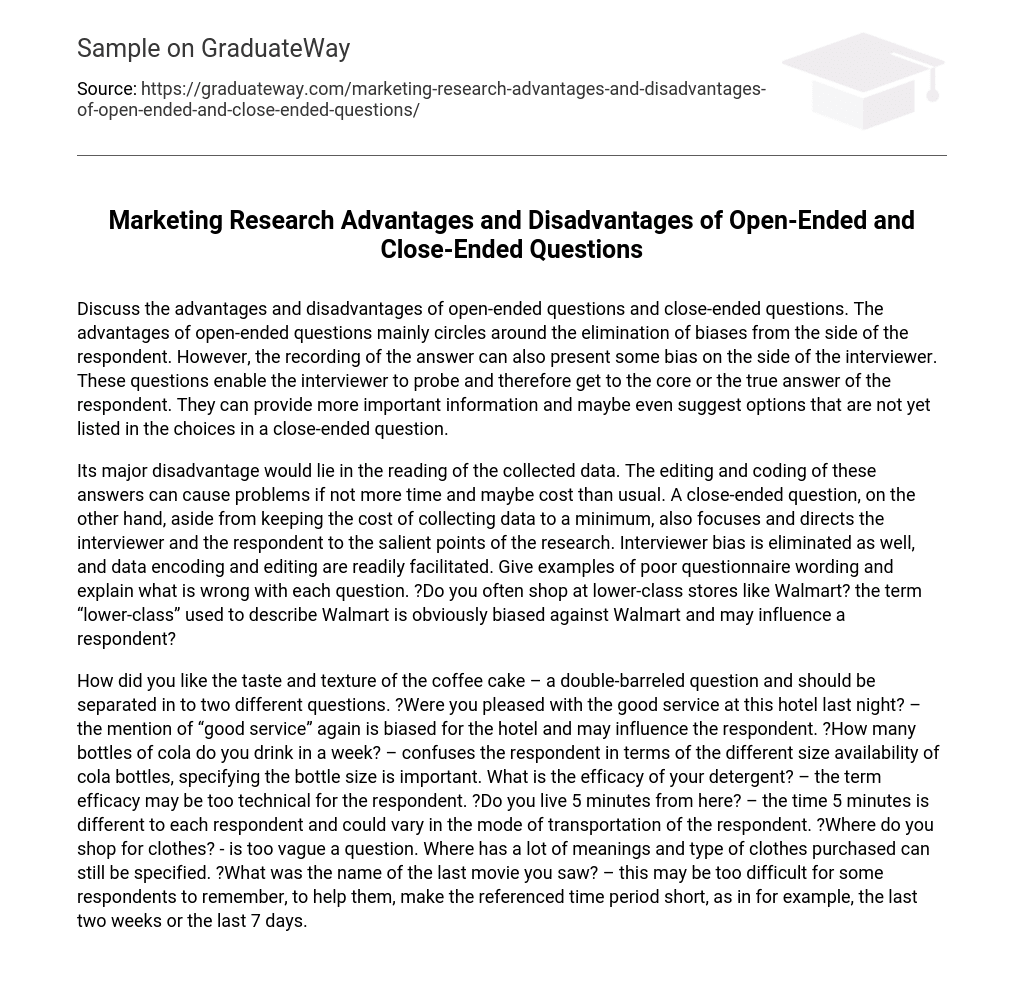Discuss the advantages and disadvantages of open-ended questions and close-ended questions. The advantages of open-ended questions mainly circles around the elimination of biases from the side of the respondent. However, the recording of the answer can also present some bias on the side of the interviewer. These questions enable the interviewer to probe and therefore get to the core or the true answer of the respondent. They can provide more important information and maybe even suggest options that are not yet listed in the choices in a close-ended question.
Its major disadvantage would lie in the reading of the collected data. The editing and coding of these answers can cause problems if not more time and maybe cost than usual. A close-ended question, on the other hand, aside from keeping the cost of collecting data to a minimum, also focuses and directs the interviewer and the respondent to the salient points of the research. Interviewer bias is eliminated as well, and data encoding and editing are readily facilitated. Give examples of poor questionnaire wording and explain what is wrong with each question. ?Do you often shop at lower-class stores like Walmart? the term “lower-class” used to describe Walmart is obviously biased against Walmart and may influence a respondent?
How did you like the taste and texture of the coffee cake – a double-barreled question and should be separated in to two different questions. ?Were you pleased with the good service at this hotel last night? – the mention of “good service” again is biased for the hotel and may influence the respondent. ?How many bottles of cola do you drink in a week? – confuses the respondent in terms of the different size availability of cola bottles, specifying the bottle size is important. What is the efficacy of your detergent? – the term efficacy may be too technical for the respondent. ?Do you live 5 minutes from here? – the time 5 minutes is different to each respondent and could vary in the mode of transportation of the respondent. ?Where do you shop for clothes? – is too vague a question. Where has a lot of meanings and type of clothes purchased can still be specified. ?What was the name of the last movie you saw? – this may be too difficult for some respondents to remember, to help them, make the referenced time period short, as in for example, the last two weeks or the last 7 days.





